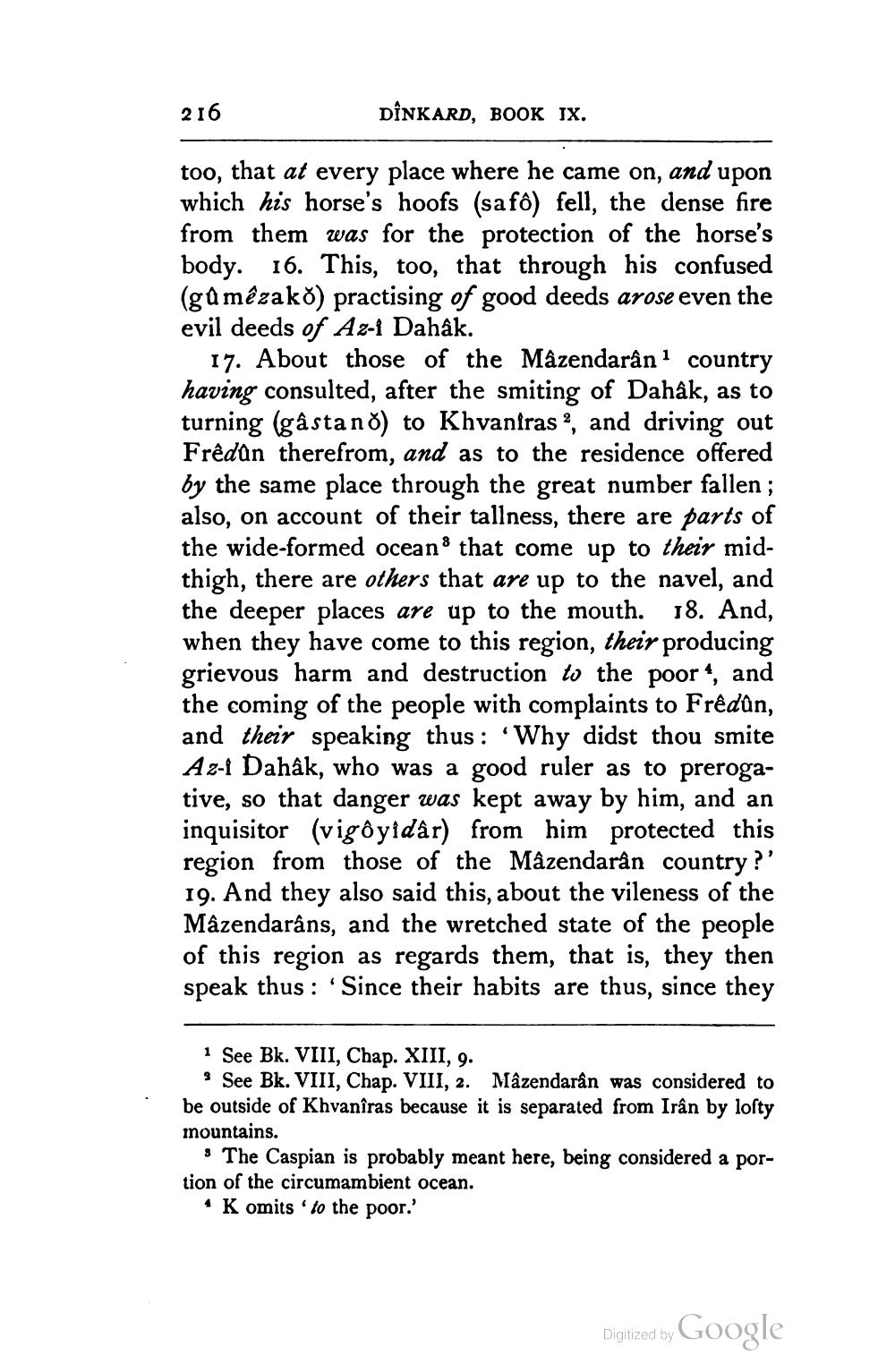________________
216
DINKARD, BOOK IX.
too, that at every place where he came on, and upon which his horse's hoofs (safô) fell, the dense fire from them was for the protection of the horse's body. 16. This, too, that through his confused (ga mêzako) practising of good deeds arose even the evil deeds of Az-i Dahâk.
17. About those of the Mâzendarân 1 country having consulted, after the smiting of Dahâk, as to turning (gasta no) to Khvanfras?, and driving out Frêdùn therefrom, and as to the residence offered by the same place through the great number fallen ; also, on account of their tallness, there are parts of the wide-formed ocean that come up to their midthigh, there are others that are up to the navel, and the deeper places are up to the mouth. 18. And, when they have come to this region, their producing grievous harm and destruction to the poor, and the coming of the people with complaints to Frédûn, and their speaking thus: “Why didst thou smite Az-i Dahâk, who was a good ruler as to prerogative, so that danger was kept away by him, and an inquisitor (vigôyidar) from him protected this region from those of the Mâzendarân country ?' 19. And they also said this, about the vileness of the Mâzendarâns, and the wretched state of the people of this region as regards them, that is, they then speak thus : 'Since their habits are thus, since they
i See Bk. VIII, Chap. XIII, 9.
s See Bk. VIII, Chap. VIII, 2. Mâzendaran was considered to be outside of Khvanîras because it is separated from Irân by lofty mountains.
The Caspian is probably meant here, being considered a portion of the circumambient ocean.
* K omits to the poor.'
Digitized by Google




